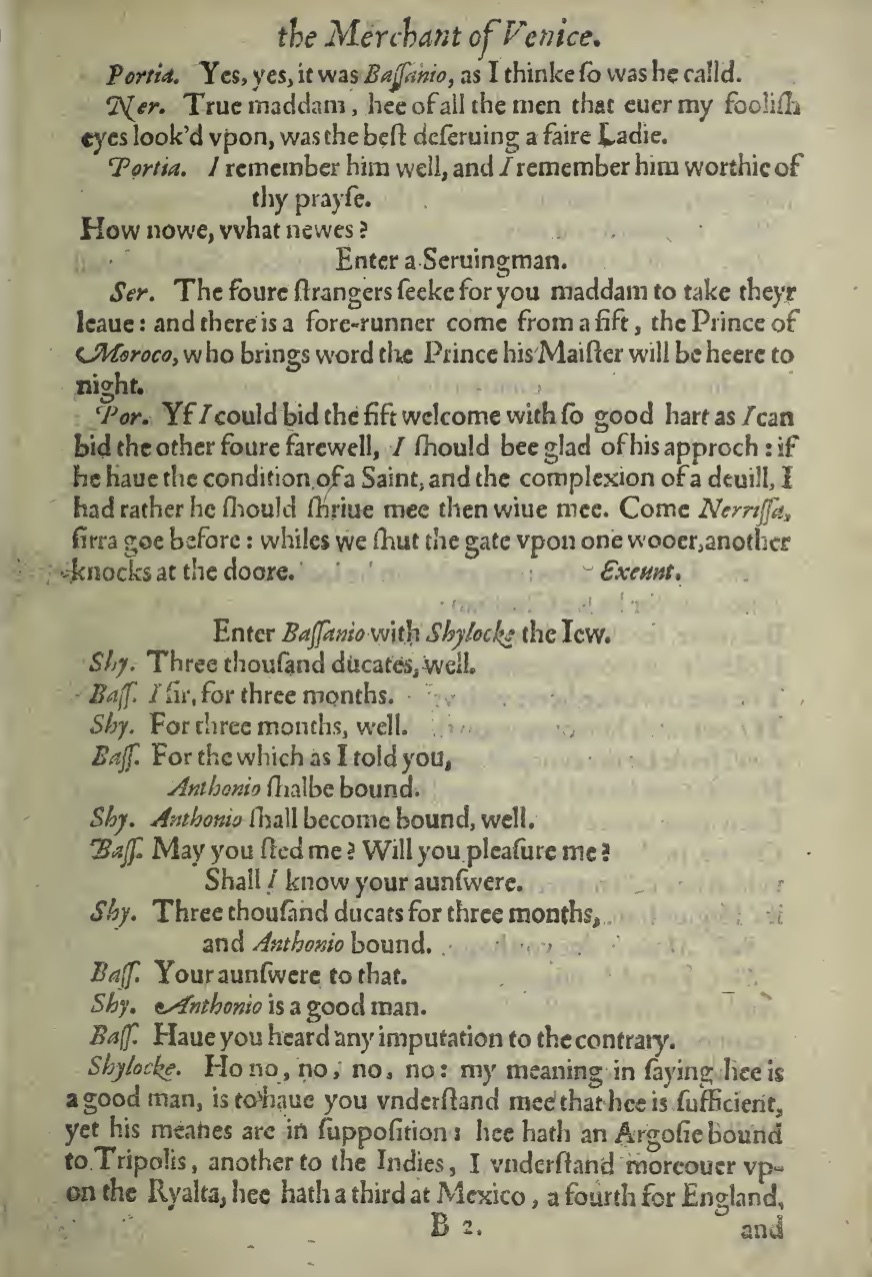Editorial note
Edited by Tess Hogan and Fatou Jackson, Spring 2020 ENGL 1600 class. Our mission when transcribing and marking this text was to follow the original as closely as possible in format, convention, and font type, but mark all of the language of value with green font. Because Merchant of Venice is a play obsessed with value and currency, we wanted to implicate the reader in that transactional realm by placing value on dialogue containing exposition and new information. We chose exposition & information as our currency because we think it is is the most valuable thing to readers when parsing a text. This valuable information ranges from insight into a character (such as Portia's racist comments about the Price of Morocco and her feelings about her suitors) to information important to the plot (such as Shylock's detailed explanation of Antonio's money situation).
the Merchant of Venice.
Image credit: Rare Books & Manuscripts Department, Boston Public Library, copy G.176.16. The most excellent historie of the merchant of Venice. First Quarto. London: 1600.
Citing this page: Shakespeare, William. The Merchant of Venice, B2r. London: 1600. Cacodemon Digital Shakespeare. Edited by Professor Erika Boeckeler's Spring 2020 Introduction to Shakespeare class. Source edition: Rare Books & Manuscripts Department, Boston Public Library (copy G.176.16). http://cacodemonshakespeare.com/comedies/merchant/b2r/.
